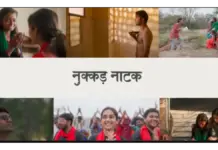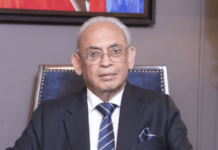PHATA POSTER NIKHLA HERO
Tips Industries Ltd.’s Phata Poster Nikhla Hero is the story of a young man, Vishwas Rao (Shahid Kapoor), who dreams of becoming a film star. However, his mother, Savitri (Padmini Kolhapure), an autorickshaw driver, wants him to become an honest police officer. Savitri’s husband, Yashwant Rao (Mukesh Tiwari), was a dishonest police officer who had died in a car accident while running away with his ill-gotten wealth after deserting his principled wife and the newborn Vishwas.
Vishwas gets an interview call from the police department in Bombay but since his eyes are set on the film industry, he begins his struggle in films. One day, while he is roaming in a police inspector’s costume, he meets social activist Kajal (Ileana D’cruz) who mistakes him for a real police officer. As luck would have it, Vishwas is able to save a girl from being kidnapped because of his police uniform. Word spreads that there is an honest police officer and, in an unrelated incident, Vishwas’ photograph in police uniform gets printed by mistake in the newspaper.
Thrilled that her son had fulfilled her dream, Savitri comes to Bombay to bless him. Vishwas keeps the facade of his being a police officer going so as not to break his innocent mother’s heart. Assisting him in this drama is struggling film writer Jogi (Sanjay Mishra) and three struggling actors (Prateek, Ishtiyaq and Vishwanath).
Meanwhile, joint police commissioner Khare (Darshan Jariwala) gets wind that dreaded terrorist Napoleon is expected in Bombay to carry out Operation White Elephant. Napoleon’s man in Bombay, Gundappa (Saurabh Shukla), is carrying on his nefarious activities by bribing police inspector Ghorpade (Zakir Hussain). Of late, Kajal has been alerting Vishwas Rao about Gundappa’s evil deeds and Vishwas Rao somehow manages to thwart Gundappa’s plans. Since Vishwas is not a police officer in reality, Gundappa and his paid stooge, police officer Ghorpade, are unable to identify the police officer pouring water on Gundappa’s plans.
Then, one day, Savitri learns the truth – that Vishwas Rao is not a police officer but a film actor. She gets the shock of her life and has to be hospitalised. Gundappa seizes the opportunity to blackmail Vishwas Rao into working for him rather than harming his interest. Vishwas has no option but to oblige because it is the question of his mother’s life.
What happens thereafter? Who is Napoleon and what is Operation White Elephant? Does Vishwas help Gundappa in his evil deeds? What is the role of joint commissioner Khare? Does Vishwas finally become a film hero or a police officer?
Rajkumar Santoshi’s story is quite routine and the same can be said about his screenplay. But several comic sequences are hilarious and will bring the house down with laughter.
The screenplay adopts the easy way out – because in the film, anything seems to be possible to do, that too, anywhere, anytime, anyhow. What seems difficult to explain is sought to be explained by the writer by simply glossing over the details, all in the name of cinematic liberty. For example, simply because the identity of Napoleon is to be revealed at the eleventh hour and not before that, he is shown to be speaking to his own people, including Gundappa, via videoconferencing in such a way that they can’t see his face due to dim lighting. Similarly, when the identity of Napoleon is revealed, his past is sought to be explained in a jiffy because there is no logical explanation to his appearance.
While the first half is entertaining for a good part, the cinematic liberties get a bit too much for the class viewers to digest. Also, the portions of Kajal and Vishwas are not as exciting and entertaining as they should’ve been. The absence of a full-fledged romantic track between Vishwas and Kajal, who are both young, is a minus point of the screenplay. Also, the drama looks straight out of a 1980s’ film.
But there are some positives too. On the plus side are the comedy sequences. The ones which bring the house down with laughter are the following: the scene in which Vishwas receives his mother on the railway platform; the scene in which he lies about joint police commissioner Khare to his mother, and about his mother to Khare; the scene in which he presses the cellphone button to understand how one is blinded for half a minute; the scene in which Jogi comes with his cronies and Kajal to Gundappa’s den; the scene in which Vishwas meets the lecherous film director (Tinnu Anand); the scenes in which Gundappa breaks into tears while chiding Ghorpade and praising Vishwas; and the scene in which Vishwas frustrates the interviewer (Neeraj Vora).
The emotional quotient is right but it could’ve been more forceful as it does not draw tears. Climax is okay. Dialogues, penned by Rajkumar Santoshi, are very appealing and punch-packed.
Shahid Kapoor does a superb job and plays to the gallery. His sense of comic timing is fantastic and he is also wonderful in emotional scenes. As for his dances, he creates a terrific impression in the very difficult ‘Agal bagal’ dance. His steps and facial expressions (which resemble a dog’s) are outstanding. His ‘Dhating naach’ dance is also superb. Ileana D’cruz has a small role and is just about okay in it. Padmini Kolhapure shines in the character of Savitri and acts with aplomb. Mukesh Tiwari is quite nice. Darshan Jariwala does the fullest justice to his role. He is truly lovely. Saurabh Shukla is first-rate as Gundappa and evokes laughter each time he comes on the screen. Zakir Hussain leaves a mark. Sanjay Mishra does an excellent job of his poker-faced comedy. Prateek (as the make-believe priest), Ishtiyaq (as the upcoming actor who rehearses as the blind man) and Vishwanath (as Jogi’s third crony) are wonderful. Tinnu Anand and Neeraj Vora, both in guest appearances, are mind-blowing. Rana Jung Bahadur, Shiva Natarajan (as Dr. Vinod Khanna), Mithilesh Chaturvedi (as Gundappa’s aide), Pradeep Choudhary, Viju Khote, Deepak Pandit and Abhay Bhargava lend good support. Salman Khan provides terrific star value in a comic scene. Nargis Fakhri adds glamour in a song-dance.
Rajkumar Santoshi’s direction is excellent. He keeps the audience engrossed and entertained despite an ordinary script. Pritam Chakraborty’s music is very good. The ‘Agal bagal’ song is a hit and its picturisation (by Bosco-Caesar) is extraordinary. The ‘Dhating naach’ song and its choreography are also lovely. The ‘Main rang sharbaton ka’ song is very well-tuned. Lyrics (by Amitabh Bhattacharya and Irshad Kamil) are lovely. Raju Singh’s background music adds to the comic flavour of the film. Kanal Kannan and Tinnu Verma’s action and stunt scenes are mass-appealing. Sets (Sandeep Suvarna) are okay. Editing is quite nice.
On the whole, Phata Poster Nikhla Hero is an entertaining fare and will keep the audience as well as the distributors smiling. But its dull start will affect its final tally. Its business in single-screen cinemas will be better than in the multiplexes because the classes would not approve of the cinematic liberties like the masses. As around 50% of the producer’s total investment of Rs. 45 crore has been recovered from sale of satellite rights, around 10% from audio, and 12.5% from sale of overseas rights, recovery of the balance 27.5% (that is, Rs. 13 crore) from India theatrical business should be quite easy.




























